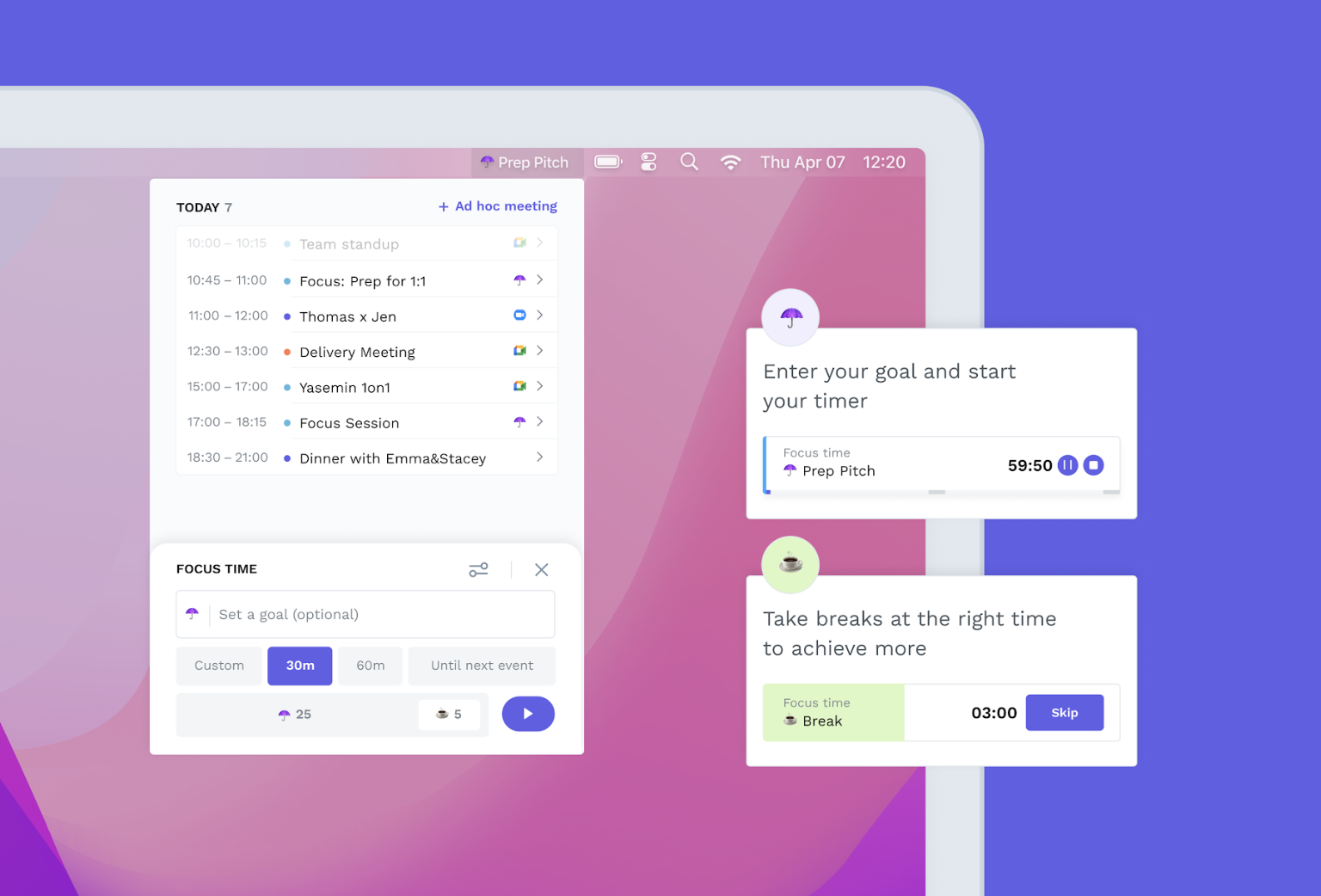Beams’ co-founders Jana Schellong and Mihri Minaz see a fundamental problem with how product teams work. While they have productivity tools that are supposed to help them work smarter, too often they end up distracted by a mishmash of notifications. They created Beams to help teams regain focus and work in a healthier and more productive way. The Berlin startup was chosen from thousands of applicants to participate in the TechCrunch Disrupt Startup Battlefield 200 in San Francisco last month.
“The problem we tackle with Beams is distraction and context switching at work. An average company is using more than 100 tools, each triggering multiple notifications throughout the day. We are helping employees focus at work and have less stress,” Minaz told TechCrunch.
The way they do this is through an app that sits in the Mac menu bar at the top of the screen and helps guide your workday. For starters, it integrates with Google Calendar and Slack with plans to add other tools over time. Through these integrations, it begins to learn about your day, who key people are in your work life, how often you are in meetings and how it can help you focus better.
“We want to bring this data together, and then give personalized suggestions on how you can work better, and by better we mean with less distraction and more focus,” Schellong said.
If you think about the day being divided into three parts, there are times when you are collaborating with your colleagues, times when you’re in meetings and finally when you are focused on a work task. If it’s time for a meeting, you can open Beams, select the meeting and it opens automatically in the correct meeting tool. If it’s time to focus, you can indicate that in Beams, which will then block off your calendar and send a notification to Slack automatically indicating you’re busy, shutting off notifications, except from the most important people who need to always be in touch with you. And the program will remind you when it’s time to take a break, too.

Image Credits: Beams
For now, the company is focusing on product teams — developers, designers and product managers — in early- to mid-stage startups and the tech stack they’re using. That’s why they are looking at Google Calendar and Slack. Down the road, they hope to add other tools important to this audience like Notion and Linear.
Schellong says because they are a native Mac application, it helps the application see how people are working. “We can also understand information from the native environment like how much time they spend on each application, how often they switch back and forth, and whether they’re actually doing what they intended to do according to their calendar,” she said.
“So we can make these things more dynamic, based on real-time information on what they’re currently working on.” That means if you are in your presentation software working on a big product launch presentation on deadline, it should detect that and limit distractions from colleagues until you are finished.
The company launched in 2021 and has raised close to $1 million in pre-seed and angel investments. The co-founders plan to explore seed funding early next year.
So far, they are pre-revenue and offering the product for free as they explore different payment approaches. “We are conducting payment experiments to validate what the business model will be. And it looks like it will be a freemium model, so free for individuals,” she said, with the hope that those individual users will recommend it to team members. From there, they could charge for team subscriptions with team-focused features.
Minaz, who is from Turkey, moved to Berlin several years ago and a mutual friend introduced her to Schellong thinking they both would hit it off. It turned out that they had a lot in common, and they began exchanging ideas, one of which became Beams.
“We share a very strong product mindset. We want to build a product and tech-driven startup, which is not the norm in Berlin. We realized really quickly that we share the same values, same ambition and want to build a nice product that feels like it’s really helping you,” Schellong said.
